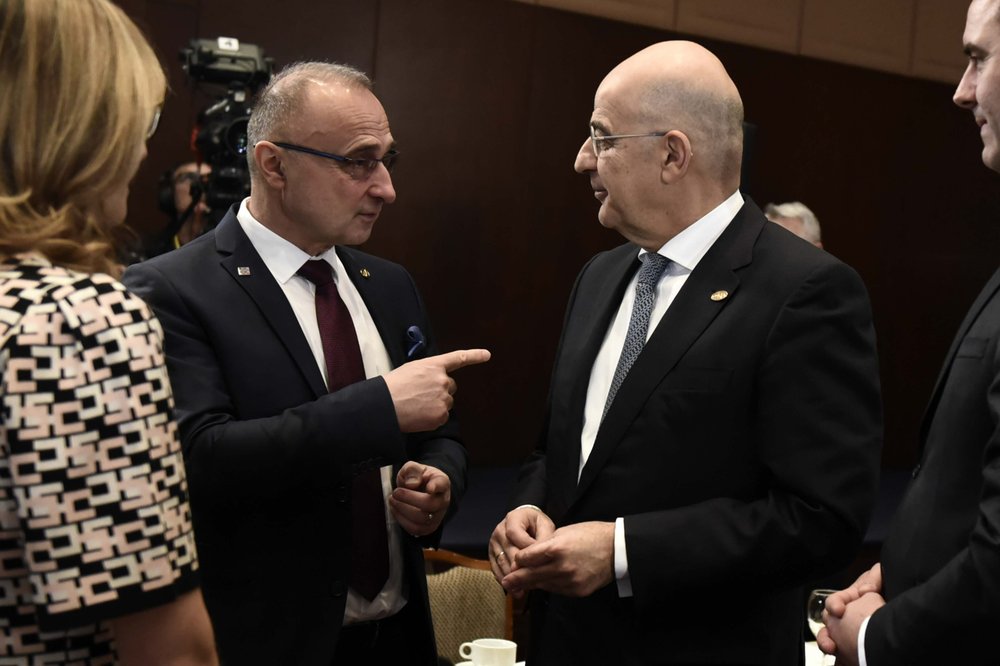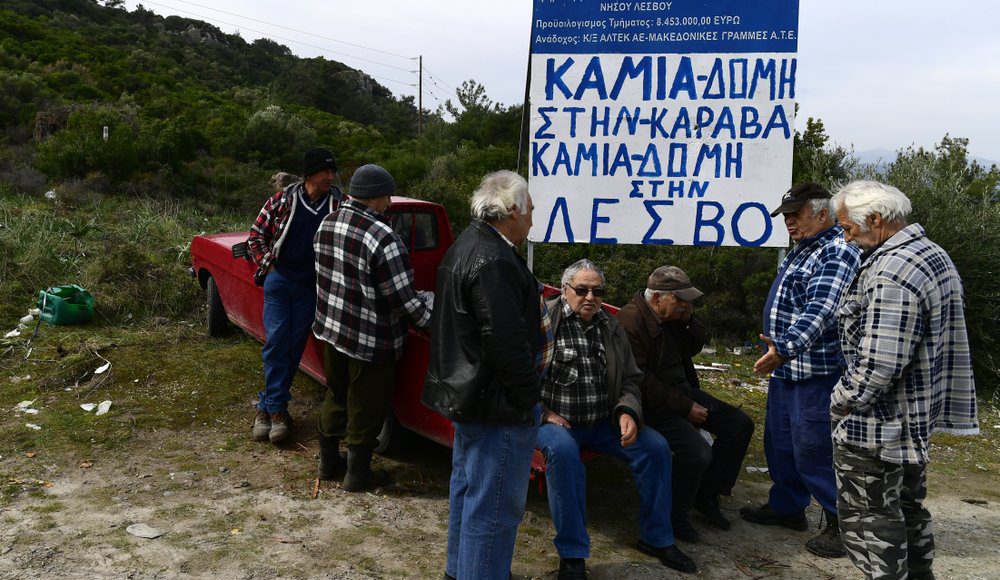Protest groups on three eastern Greek islands on Monday begun setting up blockades aimed at stopping the government from building new migrant detention centres.
The groups on Lesvos, Chios, and Samos have received broad support on the islands, including from municipal authorities and farming associations.
The government says it is determined to build detention centres on recently appropriated land to replace overcrowded camps on the islands — announcing that construction would resume this week after a brief break for consultations.
But many islanders fear that new facilities will only increase the number of migrants and refugees after the government failed to deliver on a pledge to ease overcrowding over the winter months.
“We are guarding the (appropriated) area, and if they start building, everyone here and from the surrounding villages will join the protest — because we don’t want this,” Stephanos Apostolou, a protest organizer and municipal council member from the village of Mandamados on Lesvos, told The Associated Press.

Greece remains the European Union’s busiest entry point for refugees and migrants, with nearly 4,000 making the winter crossing from Turkey to Greek islands this year through Feb. 16, according to data from the United Nations refugee agency.
Croatia’s Foreign and European Affairs Minister Gordan Grlic-Radman, whose country holds the rotating presidency of the European Union, said its priority was to improve screening mechanisms to separate legitimate asylum seekers from other migrants entering the 27-nation bloc.
“We have to make a distinction between the refugees and illegal immigration,” he told the AP, speaking on the sidelines of a meeting of southeast European foreign ministers in the northern Greek city of Thessaloniki.
“That’s very important and we have to fight the smugglers, the criminals who organize illegal immigration and we should should protect the European Union from illegal immigration.”


